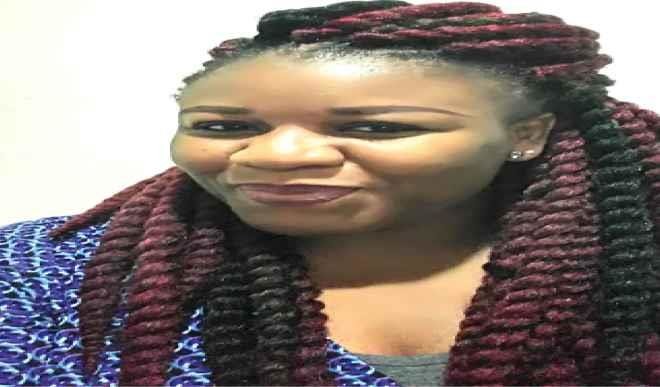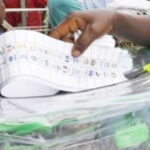
Bookshelf: Your most recent book, a collection of short stories, ‘Purple Mangoes’ made up of 10 stories was released this year by Bahati Books. It is described as a collection of short stories about African women. Why the focus on gender?
Olunosen Louisa Ibhaze: I find the social construct of gender and its complexities interesting. Many times I find myself analysing how experiences and situations affect both genders and how both genders, especially women, react to situations they can either control or not control. It is important to note that when people hear the word ‘gender experiences’, many just assume one is speaking about ‘women’s experiences’. Gender has to do with both male and female. With regards to my short story collection “Purple Mangoes” I chose to write about African women because I am an African woman, and I believe it is important to write about what I know and the intricacies of being female in Patriarchal societies. This is the reason why in the collection I touched on experiences ranging from childbirth, the marriage bed, prostitution, child marriage, widowhood practices, gender based violence and the birth of a baby girl.
Bookshelf: The first story in the collection, ‘Letter To My Child’ is one many mothers would relate to. Why did you choose to write it in letter form and what actually triggered the story?
Ibhaze: I wanted to write something maternal, sentimental and different. If I had written it as a short story, it would not have the same effect it has as when you read it as a letter to an unborn child. It’s like a letter to an unknown future.
Bookshelf: Another story in the collection, ‘The Child widow’ has a strong child marriage theme. Do you think this is a Nigerian problem or something girls are generally faced with?
Ibhaze: I would not call it a strictly Nigerian problem. There are cultures around the world where child marriage, of both genders, has been and is still being practised for religious, cultural and socio-economic reasons. The worst thing you can do to any society is not to empower its people with the knowledge that comes with basic education, which should be a fundamental human right. Poverty too can push people into associations for gain as many of the child brides come from families poorer than the families they are being married off to. I would rather call it a moral and social economic issue.
Bookshelf: You also had characters that seemed to be from Northern Nigeria and yet an aspect of the story that seemed more like what happens in Eastern Nigeria, and then Southern Nigeria. What are your reasons?
Ibhaze: I tried to take bits and pieces from different cultures and living experiences in different parts of Nigeria. As I mentioned earlier, I write what I know and not what I think I know. I tried to avoid nailing or condemning one particular culture or society, by simply telling relatable stories about women’s experiences, to give a clearer picture and the need for change. I write about child marriage and widowhood practices in one story and then I write about human trafficking in another story. Through the years I lived in different cities and experienced different cultures. I am a true Nigerian.
Bookshelf: Your 2016 novel, ‘Authentic Mama’ tells the story of Paulina Omoregbe, aka Iye Baby, who runs a beer parlour. What inspired the story?
Ibhaze: I have my beloved Benin City to thank for this story, as this is where I spent my secondary school years. When we first arrived from the North we lived in the police barracks where my Dad was the Commandant. This barracks was right next to another which was the Mobile Police Barracks. When we moved to our family house, it was opposite the army barracks. These were some of the most interesting years of my life as this was the period of the European migration boom where both young and old people were moving to Europe. As a teenager who had lived around three different barracks, there was no escape from all the drama and gist, even though I was not directly involved. Anyone who grew up in Benin City can easily relate to Iye Baby and her hustle without judgement and for those who did not grow up there, it is a peek into the lives of the lower crust of the society often unintentionally overlooked.
Bookshelf: How would you say you met the central character, Iye Baby and what did it take to develop her?
Ibhaze: There are always many Iye Babies and their rivals in every barracks and the drama is not usually too different. Their feuds are usually caused by similar triggers, usually gossip, money, sugar boys, other people’s husbands, angry wives and fellow mistresses in the same hustle. I simply put together the different “Iye Baby’s” I had come across through the years in these different barracks and made them into one hilarious and beautifully flawed character. When I think of Paulina Omoregbe aka Iye Baby, I don’t just see a hustling Sugar Mummy, I see hard work and human imperfection with a strong and amazing spirit.
Bookshelf: Your collection of poetry, ‘Winds of My Sahara’ is described as a ‘celebration of womanhood’…
Ibhaze: I chose the free verse approach to my unconventional poetry style. In this collection I am celebrating ‘womanity’. I write about the Divine, Africa the Motherland, food, Intimacy, periods, stretch marks and all. It is an easy read even non-poetry readers can enjoy.
Bookshelf: How did you start writing, generally?
Ibhaze: Writing came naturally to me. As a child I had a very active imagination and many sisters and friends. I was surrounded by Television Programmes like ‘Sesame Street’, ‘Muppet Show’, ‘Voltron’, ‘Tales By Moonlight’, ‘Magana Jari ce’, and books by Enid Blyton, Walt Disney stories and many others. In primary school, I remember drawing comics for my friends to read, usually about wicked step-mothers, naughty children and the rewards of doing good. The stories usually had moral lessons at the end which was typical. When I got to secondary school, I started writing romance with foreign characters. My friends back then were my biggest fans and readers. They would pass these handwritten stories around until it was completed. Then I read Cyprian Ekwensi’s ‘Jagua Nana’s Daughter’ and discovered the Pacesetters Series! It hit me like a tonne of bricks, to read African stories about issues I understood, set in cities I could relate to. My dream was to be published by them back then. Unfortunately, by the time I had a proper manuscript ready the series had gone out of print. Through my first degree I wrote more free verse poetry. I guess I got caught up with other things, like living in a hostel for the first time and transitioning from a teenager to an adult. After those four years, I started writing again and submitting to online magazines and publishers.
Bookshelf: What was it like trying to get published?
Ibhaze: I have written five books so far and it’s been a challenging process, especially if you do not want to take the self-publishing route many writers end up taking. Based on my experience with Nigerian publishers and those abroad, I have come to understand that writing a story you are passionate about and sending it off to different publishers is not enough. So try not to get too sentimental when publishers and literary agents reject your work or don’t respond to your submission. Just keep writing, reading through your manuscripts and submitting your work. Also, remember publishing is a business and publishers tend to gravitate towards what they can sell. It is easy to get carried away when you finally find a publisher willing to publish your work that you forget to read your contract carefully. Please always read your contract carefully and ask questions if there is anything you need clarification about. As much as we write as a passion, remember the writer, publisher relationship is still a business and not really a friendship.
Bookshelf: Literature in Nigeria has come a long way. How do you view it now compared to what it was decades ago?
Ibhaze: Nigerians are gifted storytellers. As expressive people, it shows in our gestures when we speak, pray, dance, laugh, eat-everything. A Nigerian can describe an incident to you and you get a clear picture without being at the scene of the incident. I would say Nigerian literature keeps getting better, especially now that the world seems interested in the stories we have to tell. It has come a long way from themes in Amos Tutuola’s ‘The Palmwine Drinkard’ and Chinua Achebe’s ‘Things Fall Apart’ which are timeless works.
Bookshelf: What do you usually do when you aren’t writing?
Ibhaze: I enjoy reading, photography, travelling and listening to oldies like the Bee Gees.




